
How Indian personal care brands are going niche
Indian personal care brands are targetting niche audiences with the proposition of natural and sustainable products
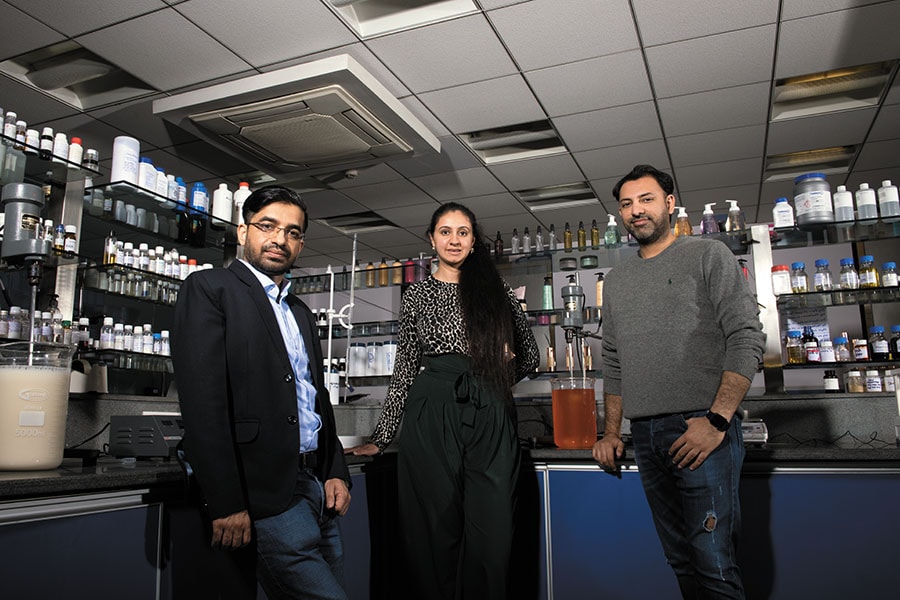 (From left) The co-founders of Bare Anatomy Vimal Bhola, Sifat Khurana and Rohit Chawla manufacture their customised products in-house at their facility in Gurugram
(From left) The co-founders of Bare Anatomy Vimal Bhola, Sifat Khurana and Rohit Chawla manufacture their customised products in-house at their facility in Gurugram
Image: Amit Verma
Any commercial haircare and skincare product—even if it caters to a particular type of hair or skin—will always satisfy only a handful of users. This was one of the key takeaways for Rohit Chawla when he quit The Man Company, a men’s grooming product brand, in 2018. Along with Sifat Khurana and Vimal Bhola, he set up Bare Anatomy in 2019. “We realised it’s not about making one or two ingredients the hero and marketing them. With Bare Anatomy, we decided to be more scientific in our approach and cater to each customer’s needs,” he says.
Bare Anatomy has built an algorithm that requires customers to answer a questionnaire about their skin and hair types, stress levels and lifestyles to provide customised hair and skincare products. The company launched its haircare line in 2019, and skincare line in mid-2020. “R&D is at the core of the brand. Each product is formulated individually, depending on the data collected from the questionnaire,” claims Bhola. Unlike a lot of brands that outsource their manufacturing, Bare Anatomy does it in-house at its Gurugram facility.
The startup has raised $1 million from Sauce, the family office of the Patni Group, and other investors. “Since February 2020, we have grown 3.5x in terms of revenue,” says Chawla, despite the lockdowns disrupting the supply chain and manufacturing. Before the pandemic, Bare Anatomy was one of the few startups with an online-only advantage, but now “it’s becoming a lot more competitive since everyone is competing in the same online space”. With a customised product range, scaling up is likely to be a concern. “We have debated if we should launch a mass market product, but it is against the brand’s ethos,” Khurana adds. The startup is likely to touch Rs 1 crore in revenue by the end of January, and has recently launched subscription plans.
The personal care market in India is set to touch $20 billion by 2035, driven by increasing disposable incomes and growing aspirations, according to ASSOCHAM. “In the last few years, the Indian market, similar to other parts of the globe, has been seeing unprecedented growth in customer consciousness towards what they are applying on their skin and hair, and how healthy and sustainable it is,” says Abhishek Goenka, head and CIO, RPSG Ventures, a venture capital (VC) fund. Environmentally sustainable personal care brands in particular are growing in popularity, as are ‘made in India’ brands. These startups have found a sweet spot in terms of pricing, as they are slightly more expensive than commercial brands, but significantly cheaper than luxury Indian brands such as Kama Ayurveda and Forest Essentials.
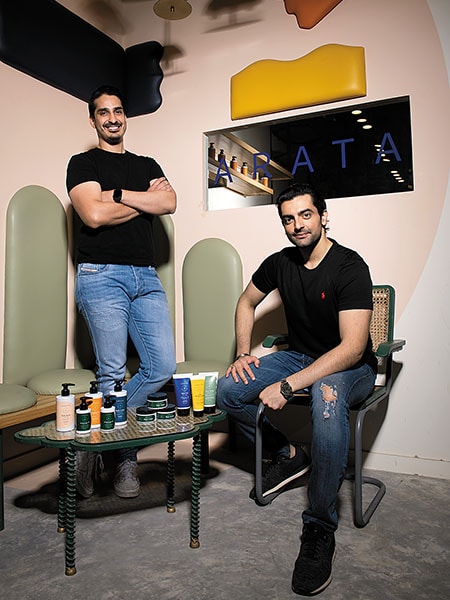 Haircare products account for 50 percent of the revenue at Arata, founded by Dhruv Bhasin (left) and Dhruv Madhok in 2018
Haircare products account for 50 percent of the revenue at Arata, founded by Dhruv Bhasin (left) and Dhruv Madhok in 2018
Image: Amit Verma

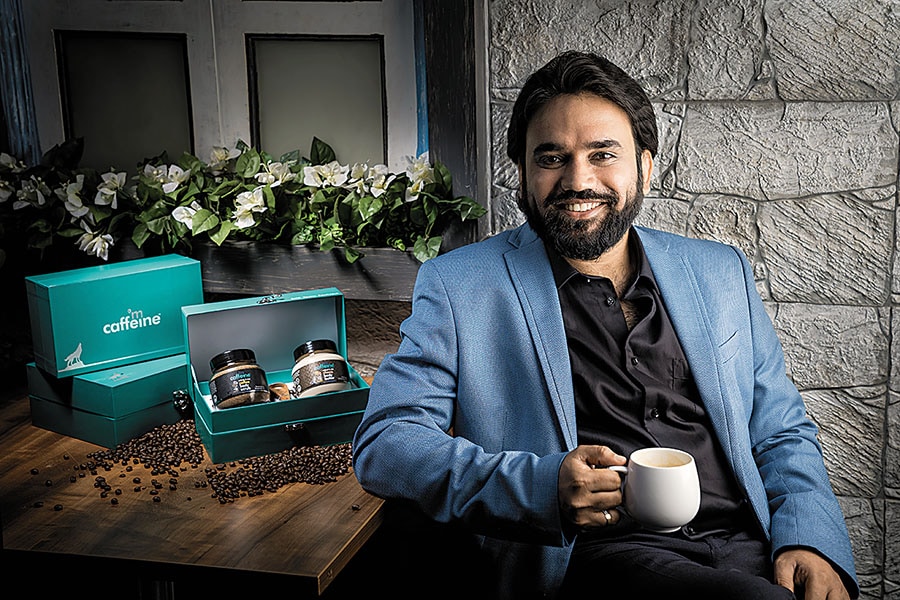 mCaffeine, founded by Tarun Sharma, has 20 products across body, face and haircare
mCaffeine, founded by Tarun Sharma, has 20 products across body, face and haircare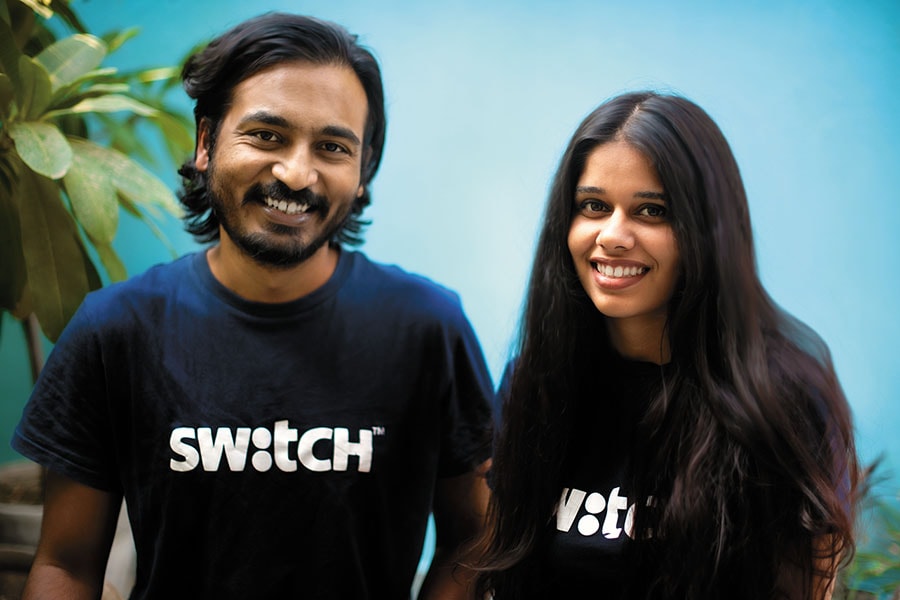 Abhishek Kumar and Rhea Shukla launched a line of body scrubs under the brand The Switch Fix
Abhishek Kumar and Rhea Shukla launched a line of body scrubs under the brand The Switch Fix
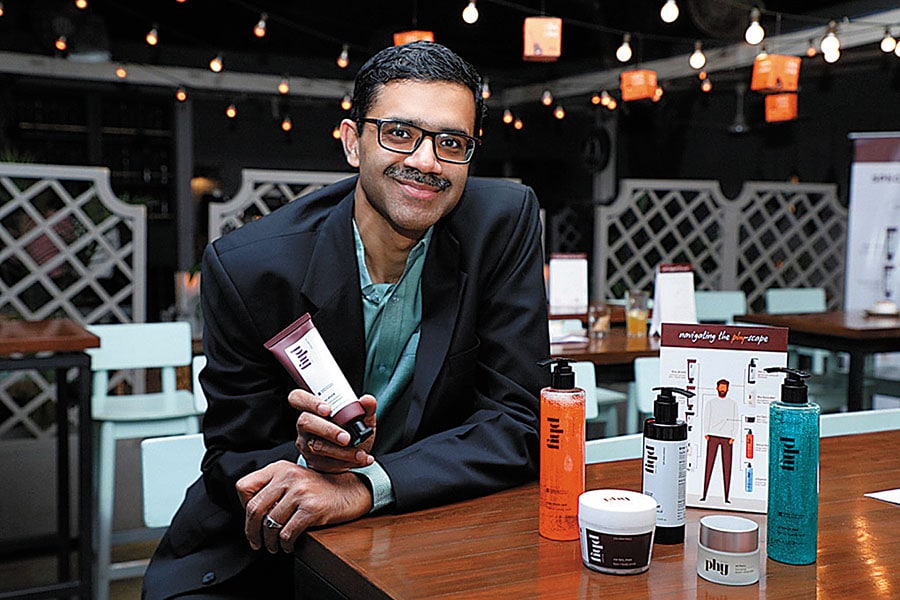 Plum, launched by by Shankar Prasad in 2014 with just one product, now has a product line of over 80 items and raised a series B funding of Rs 110 crore last November
Plum, launched by by Shankar Prasad in 2014 with just one product, now has a product line of over 80 items and raised a series B funding of Rs 110 crore last November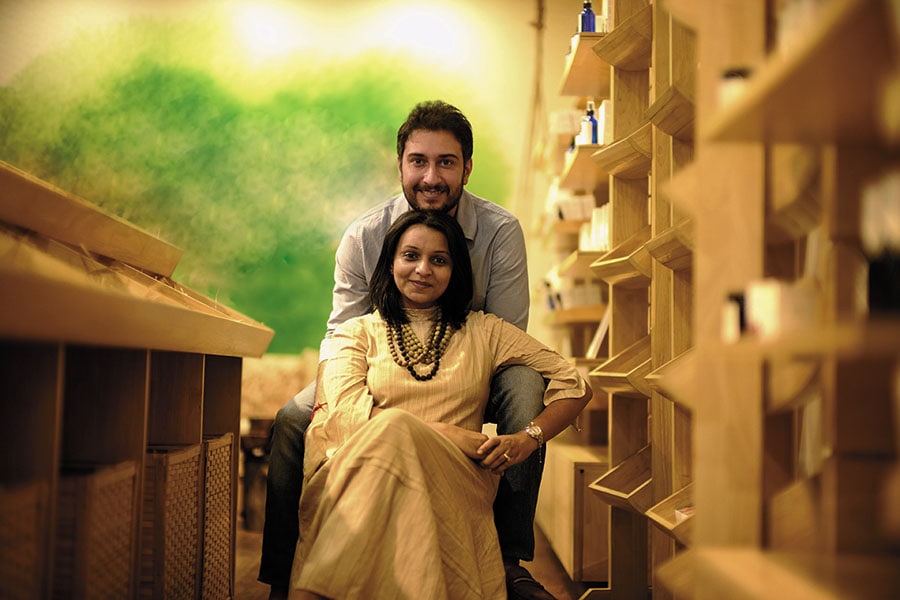 Pritesh and Megha Asher, co-founders of Juicy Chemistry, are looking at clocking in a turnover of Rs30 crore by the end of this financial year
Pritesh and Megha Asher, co-founders of Juicy Chemistry, are looking at clocking in a turnover of Rs30 crore by the end of this financial year




